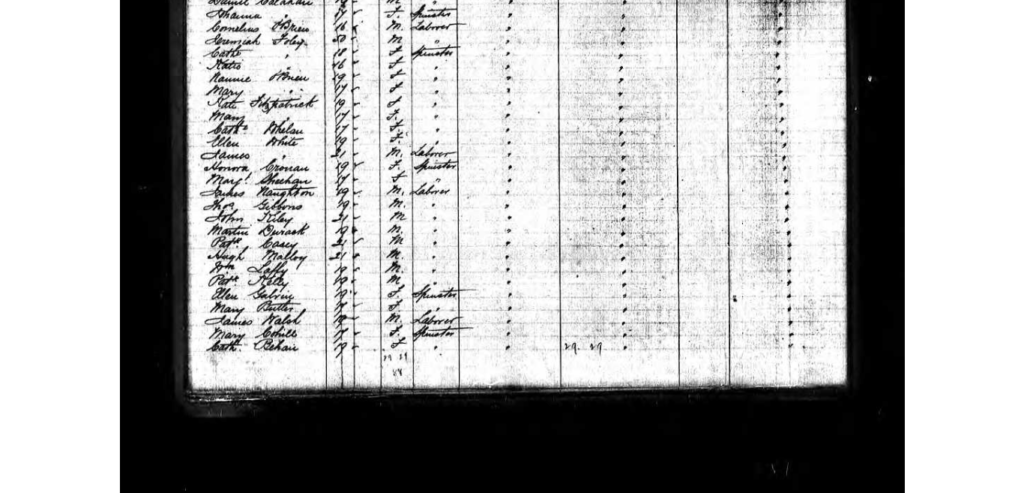52 Ancestors – 52 Weeks
The prompt for Week 27 of 52 Ancestors in 52 Weeks is solo. I grew up in an area predominantly populated by Irish Catholic immigrants in Waupaca County, Wisconsin. Early Irish immigrants were lured to this area because the landscape reminded them of their homeland and the probability of becoming land owners was high. Land ownership was enticing because most of the early immigrants were not allowed to own land in Ireland.
As a child I was aware that many adults in our community were single people. Families like Fitzgerald, Flannery, Sullivan, Mullarkey, Carew, Flanagan, Brahan and Crain all had single men and women in their midst. My parents had siblings, aunts, uncles and cousins who were single. Today I find myself and my brother Tim among those singles and although we are not emigrants we are 100% Irish American.
I have a few theories of my own that I will present in this post. First, significant numbers of early settlers were farmers. Males in the family, often the first born, inherited the land. Married women did not have that right and were not given that right Wisconsin’s constitution written in 1846 in preparation for Wisconsin achieving statehood. I remember land ownership being a point of contention for my mother who inherited 50 acres of land from her uncle in 1954. She would tell my sister and me that because she was married to my dad the land was placed in his name. She was never happy about that. (Note: I searched a number of websites to find when Wisconsin gave married women the right to own property in their name in Wisconsin, but couldn’t find the date. I didn’t want this post to become a research project so I went with what my mother told us.)
Single brothers and sisters often lived with their mother once the father passed away. Many of the people I knew were in this circumstance.
Second, because women could not inherit land in the pioneer days they did not have much to offer a a future husband of monetary value. Women married very young by today’s standards. My great grandmother, Catherine Behan, emigrated to the United States in 1881 and was listed as a spinster on the ship’s roll at the age of 19.

Catherine Behan “spinster” — last entry on page
Third, a few of the women in our community who did not get married had their own career and were able to make a living solo. My dad’s Aunt Margaret had a very successful life as a teacher. She was able to participate in career building opportunities and in her later years she traveled. Two of my dad’s single male cousins were also successful teachers and they took care of their parents in later years
Four, other women I knew stayed home to take care of sick parents and by the time the parents had passed away they were either too old or no longer interested in getting married.
I never made the decision not to marry. I just never found the right person who I felt I could live with for 40 or more years. I have had a fulfilling and accomplished life, even in retirement.
The great family mystery is why my brother Tim never married. I’m afraid we’ll never know the answer to that question.
